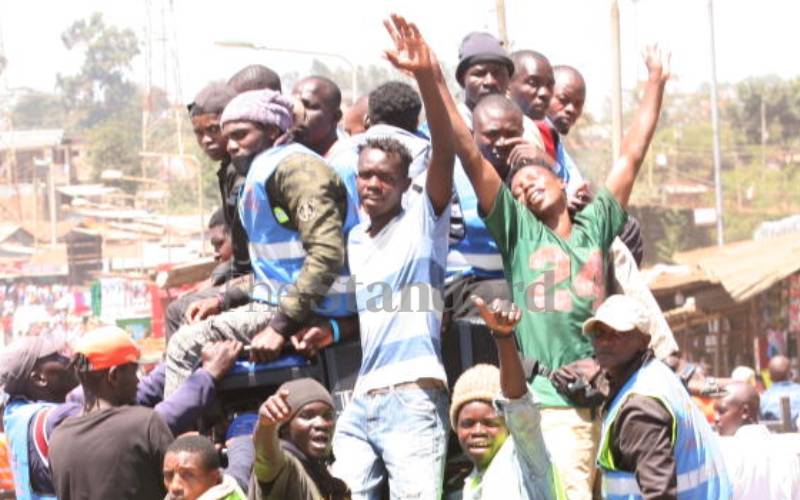×
The Standard e-Paper
Stay Informed, Even Offline

Youths hanging precariously on a moving vehicle in Kawangware, Nairobi, January 2022. [Denish Ochieng, Standard]
It’s the season of political entertainment as contenders seek our votes. They have started appearing on billboards and political rallies.